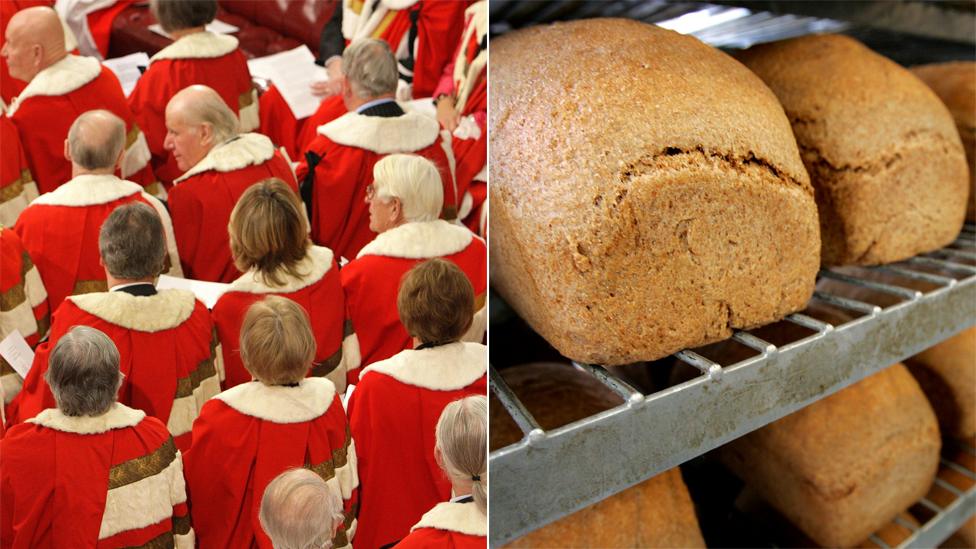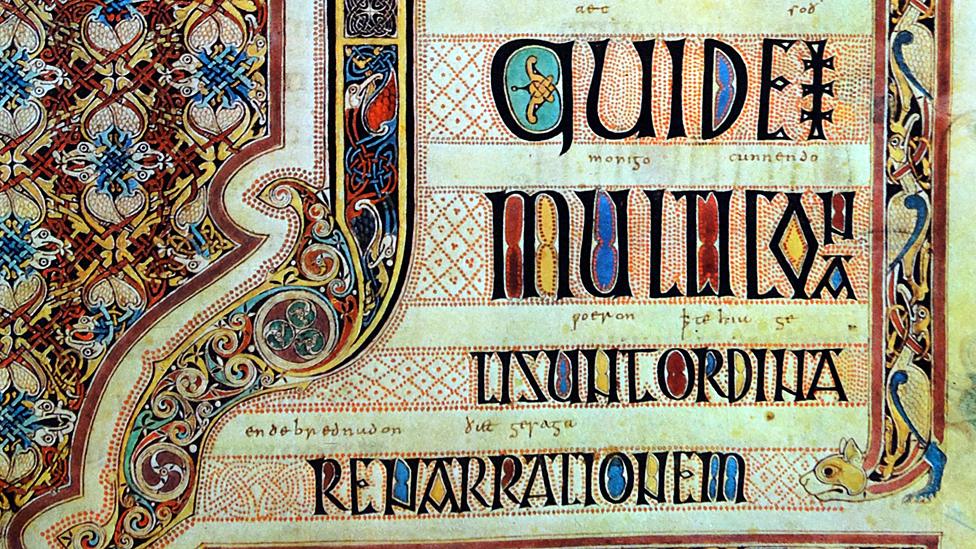The Vocabularist: Of lords, ladies and loaves
- Published

Amid talk of the House of Lords' new-found power following the tax credits vote, perhaps it is a good time to look at the origins of those time-honoured words, lord and lady.
The terms are thoroughly British - though they come from Old English, they have no equivalents in other Germanic languages.
An early use of both comes, like many other examples of the earliest written English, in a translation written between the lines of a Biblical manuscript in Latin.
Psalm 123 includes the words: "As the eyes of slaves look to the hand of their master, as the eyes of a female slave look to the hand of her mistress."
The English version written in the early ninth century between the lines of the eighth-century Vespasian Psalter translates "to the hand of their master/her mistress" as "hondum hlafarda heara" and "hondum hlafdian hire."
By the 14th century, the words had almost assumed their modern forms. In the Wyclif Psalter the phrases are translated "in the hondis of her lordis… in the hondis of her ladi".
From such early forms experts deduce that "lord" derives from "hlaef-weard" - loaf-ward, or "loaf-keeper" - and "lady" from "hlaef-dige".
The meaning of hlaef-dige is not absolutely certain, but seems to be "loaf-kneader" with the last part being related to "dough".
"Loaf-kneader" sounds rather menial. So, in fact, does "loaf-ward" if it is compared with "Hayward" originally keeper of the "hege" or hedge, and "stig-weard" - the keeper of part of a house - which became "steward".

Translations written between lines (like these in the Lindisfarne Gospels) are among early records of English words, including "lord" and "lady"
Words for servants can become honorific terms. "Constable" was originally "companion of the stable" or head groom. "Butler" became a term for high royal officials, and the name of a renowned Anglo-Irish noble family.
And from stig-weard comes the name of the Royal House of Stuart itself.
At any rate somehow, before the earliest forms of lord and lady were recorded, they had become terms of honourable distinction among the English.
In the 9th Century the tale of the travels of the Norseman Ohthere round the north of Scandinavia is told to "his lord, King Alfred" - "his hlaford, Aelfrede cyninge".
At the end of the Anglo-Saxon epic poem Beowulf, the hero on his funeral pyre is described as hlaford leofne - "beloved lord".
A far cry from the man who kept the loaf, and the woman who kneaded it.
Still, if in a future political dispute the peers took a stand on bread and butter issues, it would be appropriate.

The Vocabularist
Select topic "language" to follow the Vocabularist on the BBC News app

Subscribe to the BBC News Magazine's email newsletter, external to get articles sent to your inbox.